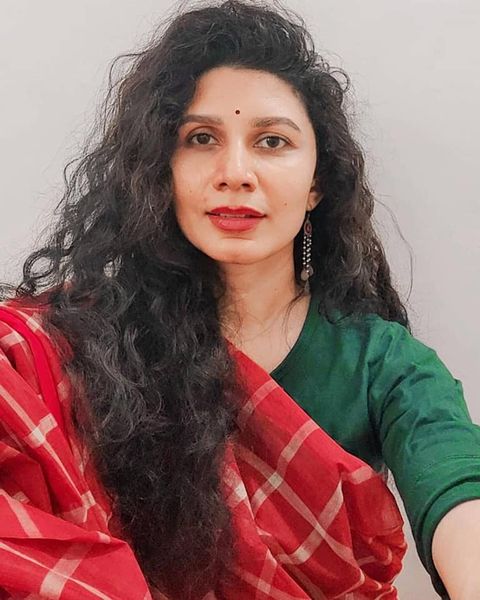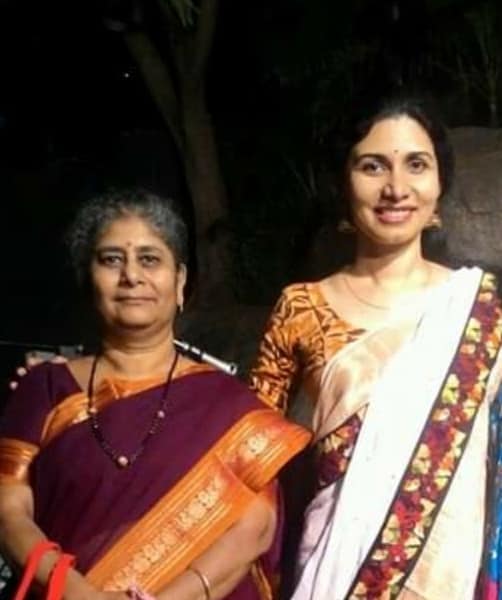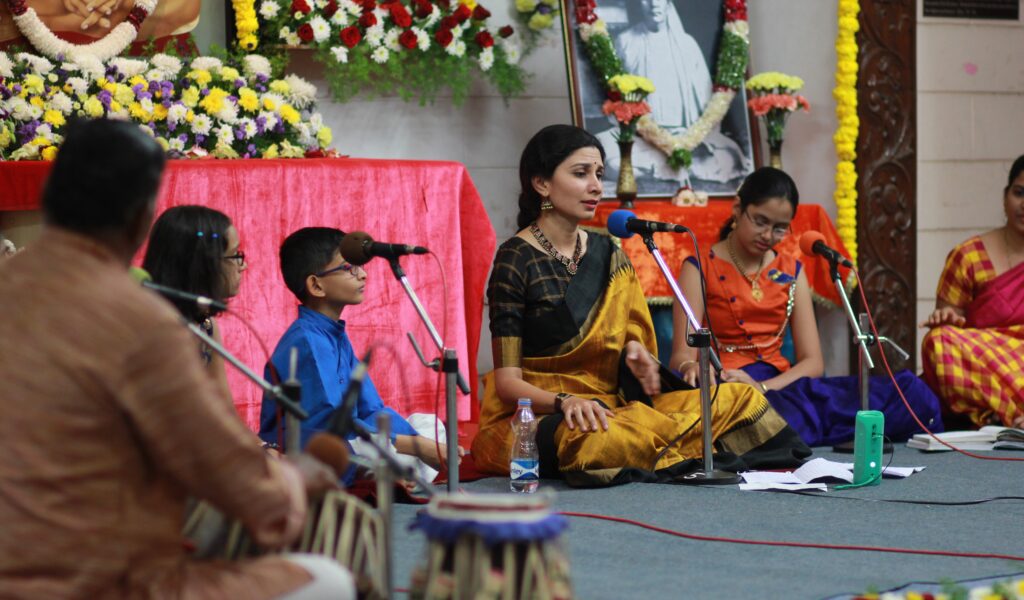
Janmadinam Idam ayi Priya sakhe, a Happy Birthday song in Sanskrit sung by Hindustani Vocalist Harini Rao and Tabla Player Anirudh Sharma went viral on WhatsApp and Facebook in 2020. Before the year 2020 was out, the duo added another Sanskrit song, Varsha Nutanam – the New Year Greetings song, which was followed up by Viväha dinam idaà bhavatu harñadaà – Wedding Day wishes released in June 2021.
“People were sharing the Happy Birthday song for months after its release. It was very exciting, because we had put least thought into it! We had just finished performing for an online concert and were packing up. We were left with literally five minutes and we thought of doing the Birthday song,” reveals Harini Rao in conversation with Natyahasini. Later, she also did a workshop on small Sanskrit songs for children and everyone interested and it was very well received. “It was lovely to see small children learning these songs quickly and presenting it also,” says the singer.
Vocalist Harini Rao states that lockdown was, honestly, a welcome change for her, as it ensured she was indoors and spent all her time in furthering her art and learning. “I began learning from more gurus like Manjusha Patil and Vedavathi Prabhakar garu and NC Murthy garu. It made me sit down and think about all that I could do, learn and practice while staying indoors. I was indoors for over a year and that gave me a lot of opportunity to upskill myself too – learnt to record music and work with it too,” says the singer.
Respect Language: Harini, who learnt Hindustani music under Late Swati Phadke ji, and currently learning Lalitha Sangeetam from Gurus Vedavathi Prabhakar and NC Murthy, says: “The one thing I understand we need to do as learners, is to respect the language. Understand that we do not know something, and make that extra effort to pronounce correctly – be it Telugu or Tamizh or Hindi or Urdu. Each language has a nuance which is very subtle and must be adhered to. Listening to the diction of acclaimed artists and paying attention to detail is of prime importance,” she says.

The singer gives credit to her Guru Late Swati Phadke ji for her music career. “She always motivated me towards that goal. Also, while I had a full-time corporate job, I was finding it hard to sit down to practice and spend time on it. I was fortunate enough to be in a very privileged family, with social capital, which allowed me to take the step to quit my job and be a classical musician. I feel that it’s only when you have a very comfortable life and a solid support system (financially, emotionally) in your parents and/or your partner, is when you can take that leap of faith of quitting a salaried job,” says the pretty singer.
She quickly adds that she wouldn’t recommend this as a generalised blanket option to the readers and followers, who may or may not be as fortunate as her. “Especially for women, I’d always put financial independence as a life priority, before running after one’s passion,” Harini advices.
Gift of Swati ji: The Hindustani singer acknowledges that she has literally grown up in the love and care of Late Swati Phadke ji. “I used to spend hours at her place after school and college and even when I was working. She always pushed me to take up music fulltime, but I never had the confidence to do it, but she inspired and had that faith in me and supported me when I quit everything to sing,” she says. The playback singer says her guru was more of an academician than a performer. “But she was so humble that she herself used to ask me to learn from other gurus who are performers and even introduced me to some. Everything I utter today is a gift she has given me. The loss of a guru is very hard to bear and I experience it every day. I had never imagined a time like this would come and was never ever prepared for it. But her life lessons remain with me – the sense of gratitude, valuing human relationships and to always update one’s art form – and so many more, these will stay with me forever,” she says.

Harini has collaborated with celebrated dancers from Hyderabad and abroad. “In fact, I have sung not just for Kathak artists, but also for Bharatanatyam, Kuchipudi and Mohiniyattam dancers as part of collaborations,” the vocalist says. She has stopped creating Terracotta jewellery, for full time singing.
Harini acknowledges that after easing of the first lockdown, she had an opportunity to perform for very small gatherings and one concert for which she travelled to Chennai. “I liked it in a way, as they were all very intimate and had a very select discerning audience. Honestly it is important for us artists to get in front of a gathering, for our own mental health and sense of gratification, but obviously not at the cost of risking anyone’s health,” she says. The artist says that it would be nice to have minimal audiences, multiple times maybe. “Organisers could think of events in open spaces like parks and at timings besides evenings. That way there’ll be an opportunity to experience morning and afternoon raagas too, which hardly get limelight because of the usual evening concert timings,” points out the Hindustani vocalist.

Your article helped me a lot, is there any more related content? Thanks!